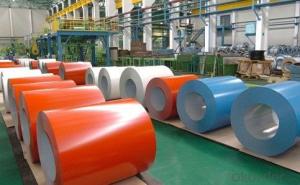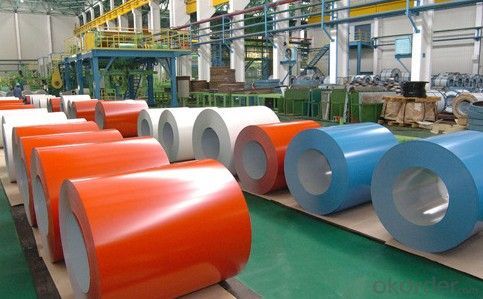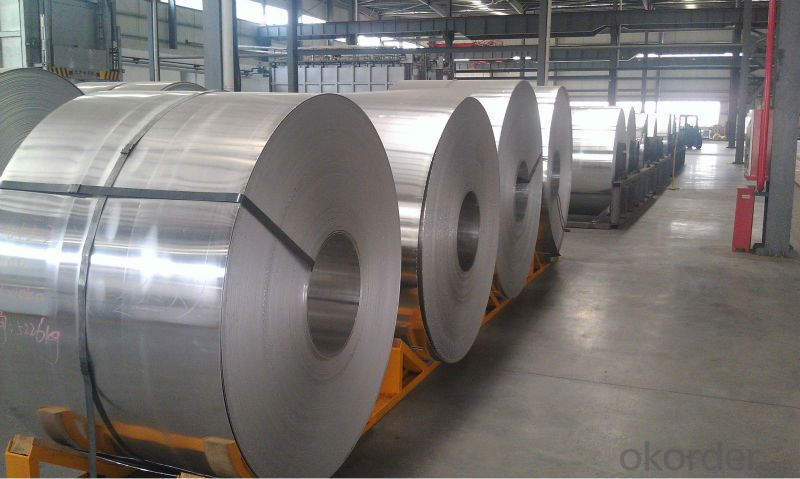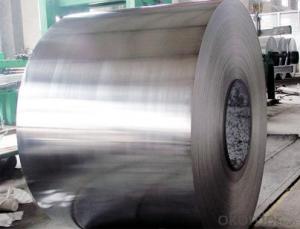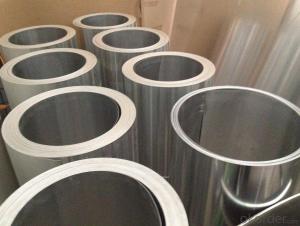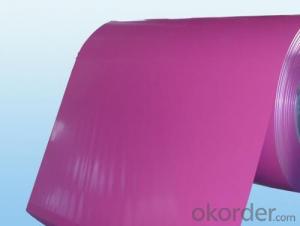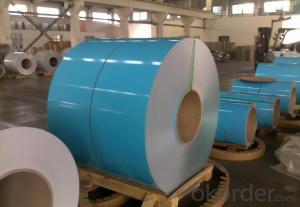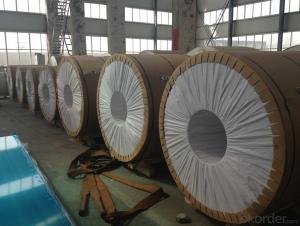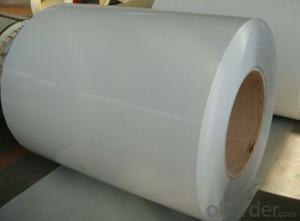Aluminum Coil Tube for Prepainted Aluminum Roll Curtain Wall Materials Production
- Loading Port:
- Shanghai
- Payment Terms:
- TT OR LC
- Min Order Qty:
- 2 m.t.
- Supply Capability:
- 60000 m.t./month
OKorder Service Pledge
OKorder Financial Service
You Might Also Like
Specification
Prepainted Aluminium Roll For Curtain Wall Materials Production
Alloy | 1050, 1060,1100, 3003 3004 3105 3A21 5005 5052 etc |
Temper | O/H12/H14/H1/H18/H32/H34/H36/H38//H111/H112/H116/H321/T6/T651/T3/T351 etc |
Thickness | 0.1mm to 6mm |
Width | 20mm to 3300mm |
Coil weight | 100kgs to 6 tons depends on actual requirement |
Core material | Aluminum or paper |
Coil inner diameter | 75mm, 150mm, 200mm, 300mm, 405mm, 505mm or as required |
Appplication | construction, roofing, decoration, lamping etc |
Package | eye to wall or eye to the wall for aluminum coil with wood pallet (wooded case also available) |
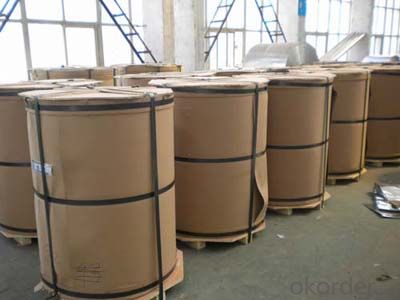
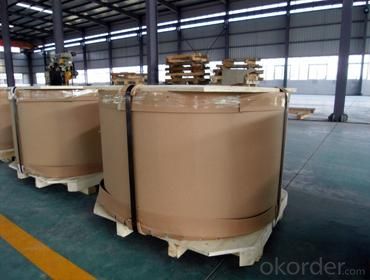
3) Glass curtain wall frame
4) Interior decoration
5) Elevator decoration
6) Signs, nameplate, bags making.
7) Automobile parts material
8) Office and Household appliances: HVAC equipments
9) The consumer electronics: mobile phones, digital cameras, MP3 .etc.
Coating varieties
Polyester Coatings (PE)
PE (polyester) coatings exhibit an excellent combination of hardness, flexibility, flow, appearance, and superior resistance to dirt retention in indoor and outdoor applications. These coatings are highly resistant to abrasion, metal marking, staining, and marring, and require minimal maintenance. Glazetech uses polyester paints which provide excellent colour and gloss retention properties.
Polyvinylidene Fluoride Coatings (PVDF)
PVDF (polyvinylidene fluoride) is a chemical resistant thick film barrier coating commonly used in architectural applications where both excellent appearance and substrate protection must be maintained over a long period of time. This coating is unaffected by most chemicals and solvents and has excellent wear and abrasion resistance. PVDF also has a high dielectric strength, excellent resistance to weathering and the ability to self extinguish.
FAQ
--Q: Do you provide free samples?
--A: Yes, free samples will be sent to you on freight at destination.
--Q: Can I get your latest products catalogue?
--A: Yes, it will be sent to you in no time.
--Q: What is the MOQ?
--A: 2 tons
--Q: What are your payment terms?
--A: We accept L/C, T/T.
--Q: What kinds of alloy can you supply?
--A: 1000 series: 1050, 1060, 1070, 1100, 1145, 1200
3000 series: 3003, 3004, 3105, 3104
5000 series: 5052, 5083, 5754, 5182
6000 series: 6061, 6063, 6062, 6063
8000 series: 8011, 8021
--Q: What’s the coating of top side?
--A: PVDF and PE coating
--Q: What kinds of temper can you supply?
--A: O-H112: O,H12,H14,H16,H18,H22,H24,H26,H,32,H34,H111,H112
T3, T4, T6
- Q: What are the common applications of aluminum coils in the aerospace industry?
- Aluminum coils are commonly used in the aerospace industry for various applications such as constructing aircraft frames, manufacturing wings, building fuselages, and designing engine components. The lightweight yet strong nature of aluminum makes it an ideal choice for these purposes, as it helps reduce overall aircraft weight, enhance fuel efficiency, and improve performance. Additionally, aluminum's corrosion resistance properties play a crucial role in ensuring the longevity and durability of aerospace structures.
- Q: why is aluminum to the right side of the periodic table if it's a metal and why is it negatively charge if it's a mental. also if you combine it with like another metal will it be an ion since its positively charge or no because they are both metals
- Aluminum is not placed with the other metals such as transition metals or alkali metals because it is classified as a poor metal. Elemental aluminum, in it's pure form, is not an ion because it has no charge. If combined with another metal, the result will also be neutral if the metal aluminum was being combined with was neutral. Hydrogen won't have the same case because it is not a metal, it is a gas. The only reason it is in the same column as metals is because they all have 1 valence electron
- Q: Is it possible to construct a lampshade using an aluminum coil?
- <p>Yes, you can use an aluminum coil to make a lampshade. Aluminum is a lightweight, durable, and heat-resistant material, making it suitable for lampshade construction. You can bend and shape the coil into a desired form and attach it to the lamp base. Ensure proper electrical insulation and avoid direct contact between the coil and the light bulb to prevent overheating. It's advisable to use a professional or follow detailed instructions to ensure safety and a quality result.</p>
- Q: What specific conditions or considerations need to be taken into account when utilizing aluminum coils in high-temperature settings?
- <p>When using aluminum coils in high-temperature environments, it's crucial to consider the material's melting point, which is around 660掳C (1220掳F). Ensure that the operating temperature does not exceed this threshold to avoid deformation or failure. Additionally, aluminum's strength and conductivity can be affected by high temperatures, so it's important to account for potential changes in performance. Protective coatings or treatments may be necessary to prevent oxidation and maintain the coil's integrity. Always consult material specifications and consult with material science experts to determine the suitability of aluminum coils for specific high-temperature applications.</p>
- Q: what properties etc makes us use aluminium as the material behind cans...And why does it have the properties?
- Aluminium only became popular in the sixties. Prior to that it was steel cans. You had to have a church key to open them. Aluminium is cheaper to recycle and make than steel. It always comes down to money and costs.
- Q: How are aluminum coils joined together?
- Aluminum coils are typically joined together through a process called welding. This involves heating the ends of the coils and applying pressure to fuse them together, creating a strong and seamless joint.
- Q: What are the common surface treatments for aluminum coils in the marine industry?
- In the marine industry, aluminum coils are commonly subjected to various surface treatments to enhance their durability and resistance to corrosion. Some of the most common surface treatments for aluminum coils in the marine industry include anodizing, powder coating, and chemical conversion coatings. Anodizing is a popular surface treatment method that involves the formation of a protective oxide layer on the aluminum surface through an electrolytic process. This oxide layer not only enhances the corrosion resistance of the aluminum coil but also provides it with improved abrasion resistance and an attractive appearance. Anodizing can be done in various colors, allowing for customization and aesthetic appeal. Powder coating is another widely used surface treatment for aluminum coils in the marine industry. It involves applying a dry powder to the aluminum surface, which is then cured under heat to create a durable and protective layer. Powder coating provides excellent resistance to UV rays, chemicals, and abrasion, making it a favorable choice for marine applications where exposure to harsh environmental conditions is common. Chemical conversion coatings are also commonly applied to aluminum coils in the marine industry. These coatings are formed through a chemical reaction between the aluminum surface and a solution containing specific chemicals. The resulting coating provides excellent corrosion resistance and acts as a barrier against moisture and other environmental factors. Chemical conversion coatings are often used as a pre-treatment before applying other coating systems to further enhance the aluminum coil's protective properties. Overall, the choice of surface treatment for aluminum coils in the marine industry depends on factors such as the intended application, environmental conditions, and desired aesthetics. Anodizing, powder coating, and chemical conversion coatings are among the most common options, each offering unique benefits to ensure the longevity and performance of aluminum coils in marine environments.
- Q: Can a spring balance be used to accurately determine the weight of an aluminum coil?
- <p>Yes, you can use a spring balance to measure the weight of an aluminum coil, but the accuracy depends on the balance's specifications. Ensure the balance has a sufficient capacity to measure the coil's weight and is calibrated correctly. Keep in mind that spring balances are less precise than electronic scales, especially for heavy or sensitive measurements. For high accuracy, consider using an electronic scale designed for industrial use.</p>
- Q: Are there any safety considerations when handling aluminum coils?
- Several safety considerations must be taken into account when dealing with aluminum coils. To begin with, the weight and unwieldiness of these coils necessitate the use of proper lifting techniques or mechanical lifting equipment to avoid strain or injury. Furthermore, it is crucial to exercise caution and wear protective gloves when handling aluminum coils due to their sharp edges or corners, in order to prevent cuts or punctures. Moreover, it is essential to ensure that coils are grounded correctly to prevent electrical shock, as aluminum has the ability to conduct electricity. In addition, maintaining a clean and dry working area is of utmost importance, as aluminum coils can become extremely slippery when wet or oily, thus preventing slips, trips, and falls. Lastly, to prevent any chemical reactions or hazardous situations, it is necessary to handle and store coils separately from incompatible substances, as aluminum can react with certain chemicals. In conclusion, adhering to proper handling procedures, using appropriate personal protective equipment, and remaining vigilant of potential hazards significantly reduces the risk of accidents and injuries when dealing with aluminum coils.
- Q: Are aluminum coils suitable for roofing?
- Yes, aluminum coils are suitable for roofing. Aluminum is a lightweight and durable material that is resistant to corrosion, making it an excellent choice for roofing applications. It is also highly reflective, which can help to reduce energy costs by keeping the building cooler. Additionally, aluminum coils are easy to install and maintain, making them a popular option for both residential and commercial roofing projects.
Send your message to us
Aluminum Coil Tube for Prepainted Aluminum Roll Curtain Wall Materials Production
- Loading Port:
- Shanghai
- Payment Terms:
- TT OR LC
- Min Order Qty:
- 2 m.t.
- Supply Capability:
- 60000 m.t./month
OKorder Service Pledge
OKorder Financial Service
Similar products
Hot products
Hot Searches
Related keywords
